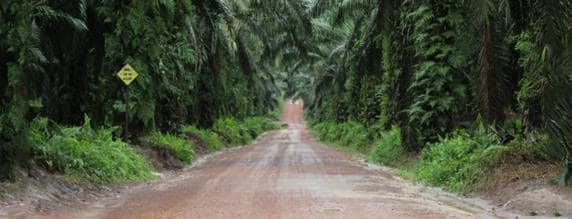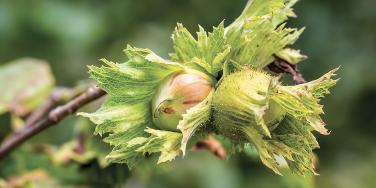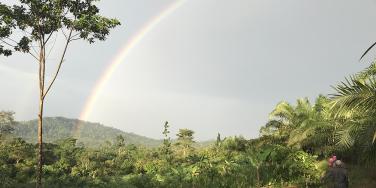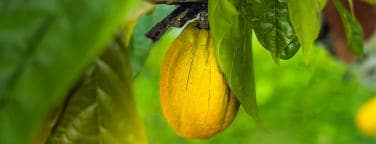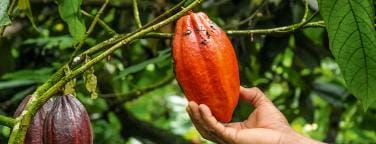FERRERO’S THIRD PALM OIL PROGRESS REPORT
Our journey towards responsible palm oil supply
We have been working towards a responsible supply of palm oil since 2005. At that time our first strategy involved investing in RSPO segregated certified palm oil. Although we achieved 100% RSPO segregated certified palm oil we aren't stopping there. Our commitments go beyond the certification scheme. This was demonstrated by our palm oil Charter, which was published in November 2013. We also became a member of TFT, a global non-profit organisation, whose teams work across the world to help transform supply chains for the benefit of people and nature. TFT supports us to implement our commitments. Those commitments aim at achieving full FFB (Fresh Fruit Bunch) traceability to the growers we are sourcing from, visiting the plantations and providing recommendations for meeting our Charter where necessary.
This is our third progress report since the introduction of our palm oil Charter. It reports the actions that have been undertaken, the progress made and the results achieved since the previous report.
Ferrero 1st palm oil progress report
Ferrero 2nd palm oil progress report
Traceability back to the plantation
On top of achieving fully RSPO segregated certified supply chain we have also reached traceability to the plantation for 98% of the CPO (Crude Palm Oil) volume we purchase. This means we have data on the plantations of origin of the FFB, which are squeezed to produce the palm oil used in our products.
Our commitments are motivated by the desire to have direct contact with our palm oil suppliers and establish a short supply chain in order to be close to the growers, which facilitates the understanding of the supply chain and the knowledge of the origin of the palm oil we buy from. Ferrero’s current records show that the total palm oil supply is 100% segregated and comes from 59 mills and 249 plantations in Peninsula Malaysia (74% of total volumes), Papua New Guinea (17.4%), Insular Malaysia (3.8%), Indonesia (1.7%), Brazil (1.0%) and the Solomon Islands (0.1%). From our analysis 5.15% of the palm oil volumes we buy are coming from approximately 27,510 smallholders or small farmers.
Improving our suppliers practices: follow up from the field visits
Last year we performed field visits to a selection of our major suppliers’ supply base, from where we buy 74% of our palm oil. The outcome of the visits resulted in the agreement to a time-bound action plan with each grower. Since November 2014 we have worked closely with TFT and our suppliers in order to address the gaps identified during the field visits. Most of the short-term actions have been undertaken and the identified issues addressed (workers conditions, group policies update, commitments towards No-Deforestation, No-Exploitation). However some of the actions need further engagement with the growers in order to support the improvement in practices.
Towards the inclusion of smallholders in our supply chain
One of the pillars of our Palm Oil Charter is the inclusion of smallholder farmers in our supply chains. As communicated in previous reports, the field visits identified that some smallholder practices need to be improved and reported. Also, further engagement with smallholders is needed in order to support them, to achieve better practices while improving their livelihoods.
We will actively support this movement and have decided to work with Rurality, a TFT initiative which aims to empower smallholder farmers and support more resilient farming communities. We will work with our suppliers to first assess the rural dynamics of the smallholders within a selected part of our supply chain, understanding how the smallholder makes decisions and what vision they have for the future for them and their community. This assessment will give us information to tailor the support needed by small holders/famers to lead them towards transformation and improving their livelihood. We will start implementing transformation pilots with the farmers willing to embark on this initiative.
Next steps
Our programme is making significant progress implementing the Charter with our known suppliers. We will now engage applying the same process as done previously with our remaining suppliers that supply smaller volumes to ensure ‘No deforestation – No peatland – No exploitation’ palm oil in Ferrero products. In the meantime we are maintaining engagement with major suppliers in order to follow up on the action plan agreed after the field visits.
We will also test several ways of verifying our Charter implementation throughout our supply chain. The main goal is to monitor and demonstrate the robustness and proper implementation of the Charter, while not imposing additional and regular paperwork burdens on suppliers.
FAQ
1. Why did Ferrero launch the Palm Oil Charter?
We believe Ferrero has a significant role to play in leading the sustainable transformation of the palm oil sector, to the benefit of the environment and of the communities living and working in palm oil-producing countries.
So we decided to elaborate our own responsible palm oil charter, depicting the values important to us and our products.
We want to actively address the leading causes of deforestation and create the balance between the conservation of the environment, community needs and economic benefit and viability.
We have been members of the Roundtable on Sustainable Palm Oil (RSPO) since 2005. However while RSPO has offered a standard since 2004 which has made some progress on the palm oil sustainability it is not completely addressing deforestation and peat deterioration and exploitation of workers. The last review of the RSPO principles and criteria in 2013 failed to raise the bar so that it is not possible to ensure that RSPO certified palm oil meets our values.
Our target is to ensure our consumer that the palm oil we use in our products achieves our ‘No Deforestation, No Peat, No Exploitation’ commitments.
2. Why is traceability important?
RSPO segregated certified palm oil is a guarantee that the oil comes from a palm tree plantation which is certified against the RSPO principles and criteria and is not mixed during the processing with palm oil coming from non-certified plantations.
However this certification doesn't provide the location of the plantation.
Therefore we have worked with our suppliers to know the mills and the plantations from which the oil comes.
Knowing the location of the plantation we are sourcing from will allow us to monitor any risk of breach of our palm oil Charter.
3. How is Ferrero working with its suppliers to implement its Palm Oil Charter?
Through our cooperation with TFT we have been engaging with our major suppliers and have increased visibility to the oil palm growers. We have visited a sample of the plantations in order to identify the gaps between the policies, procedures and field practices with our Charter requirements and have agreed on a time-bound action plan with each of the growers.
These action plans are now being implemented and monitored to ensure their proper implementation.
4. Palm oil key facts
- Palm oil and palm kernel oil represent 32 % of the global vegetable oil production.
- 55 million tons of palm oil is produced annually.
- One hectare of oil palm trees can produce on average 3.7 tons of oil each year.
- One palm tree produces 50 kilograms of palm oil every year.
- A palm tree is productive for around 25 years.
- Indonesia and Malaysia supply around 85 % of the palm oil used globally (of which Indonesia 51%, Malaysia 34 %).
- In Indonesia and Malaysia together, approximately 4.5 million people earn a living from palm oil.
- In Indonesia 45% of palm oil production derives from smallholders, in Malaysia they represent 35% of production.
- The use of palm oil in human nutrition dates back 10,000 years.
5. Why does Ferrero use palm oil?
Palm oil is used in a variety of our Ferrero products, along with other attentively selected ingredients, for three reasons:
- The presence of palm oil can be adapted in different quantities to the requirements of each recipe, since some require more creamy fillings, others a crunchy texture, while some others both, and – what’s really important – without resorting to the hydrogenation process, which produces “trans fats” that have been recognized by the authorities and the scientific world as particularly harmful to health.
- It contributes to the balance among the other ingredients (such as hazelnuts, almonds) enhancing their taste, since it is odorless and tasteless, after the refining process.
- It helps to maintain the unique taste of Ferrero products along the whole shelf life, because of its higher stability to oxidation compared to other vegetable oils.
Additional information:
Visit also: www.tft-earth.org





